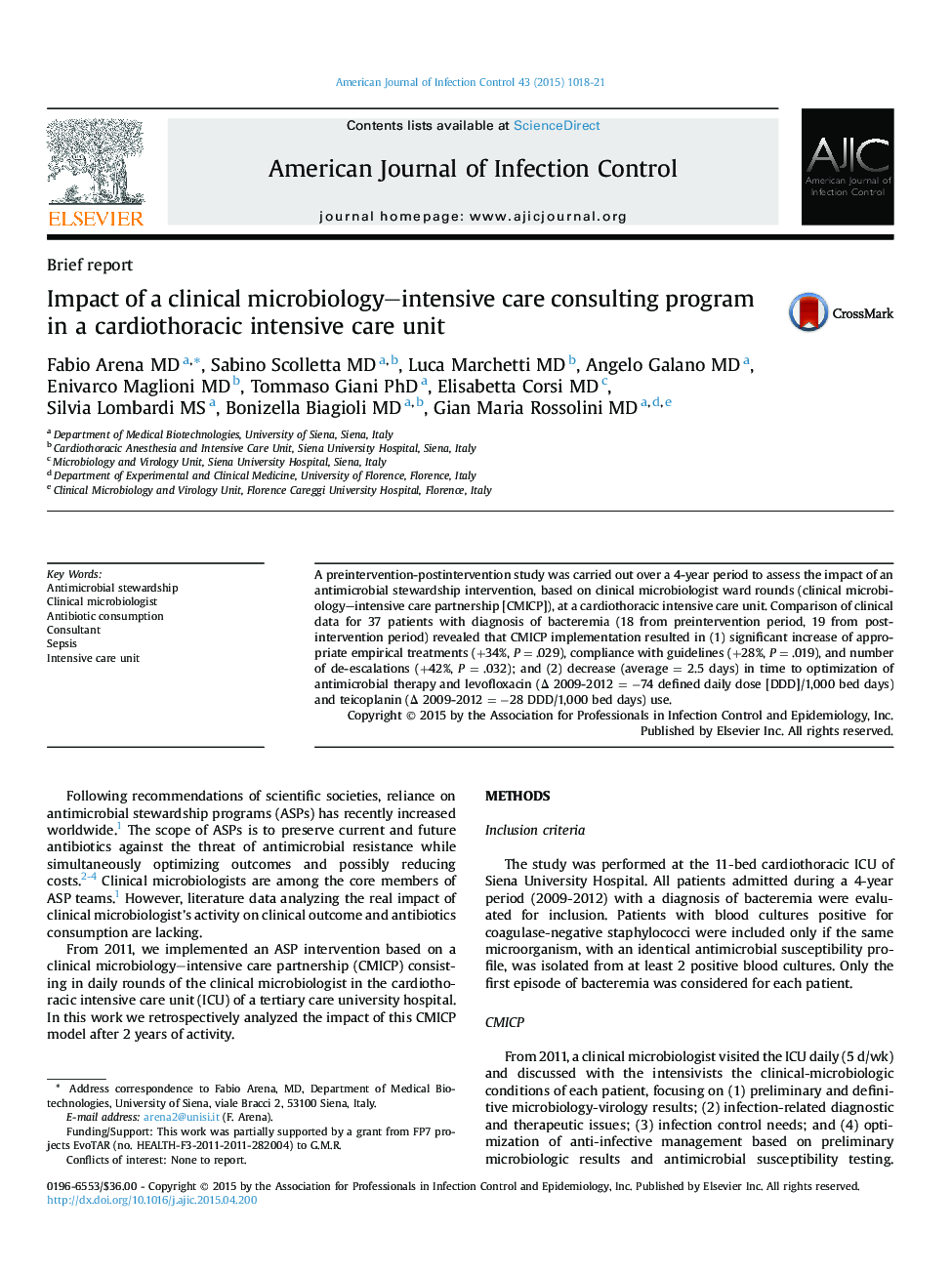| Article ID | Journal | Published Year | Pages | File Type |
|---|---|---|---|---|
| 2636737 | American Journal of Infection Control | 2015 | 4 Pages |
•The clinical microbiologist is one of the core members of the antimicrobial stewardship program team.•Clinical microbiology–intensive care consulting programs have a positive impact on antibiotics consumption.•The change in the microbiology results communication strategy can reduce antibiotics overuse.•The clinical microbiologist has a role as consultant in the intensive care unit.
A preintervention-postintervention study was carried out over a 4-year period to assess the impact of an antimicrobial stewardship intervention, based on clinical microbiologist ward rounds (clinical microbiology–intensive care partnership [CMICP]), at a cardiothoracic intensive care unit. Comparison of clinical data for 37 patients with diagnosis of bacteremia (18 from preintervention period, 19 from postintervention period) revealed that CMICP implementation resulted in (1) significant increase of appropriate empirical treatments (+34%, P = .029), compliance with guidelines (+28%, P = .019), and number of de-escalations (+42%, P = .032); and (2) decrease (average = 2.5 days) in time to optimization of antimicrobial therapy and levofloxacin (Δ 2009-2012 = −74 defined daily dose [DDD]/1,000 bed days) and teicoplanin (Δ 2009-2012 = −28 DDD/1,000 bed days) use.
